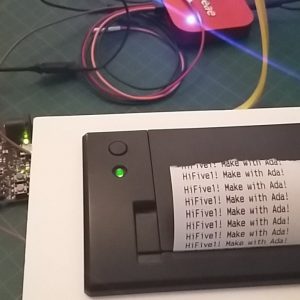Open-Source Ada: From Gateware to Application
The Neorv32 BIOS project demonstrates how Ada can serve as a powerful alternative to C in open-source embedded development. Using a fully open-source stack—including Neorv32 (a VHDL-based RISC-V softcore), the ULX3S FPGA board, and an open FPGA toolchain—this project showcases Ada’s suitability for system programming, from low-level hardware interactions to high-level software abstraction.

